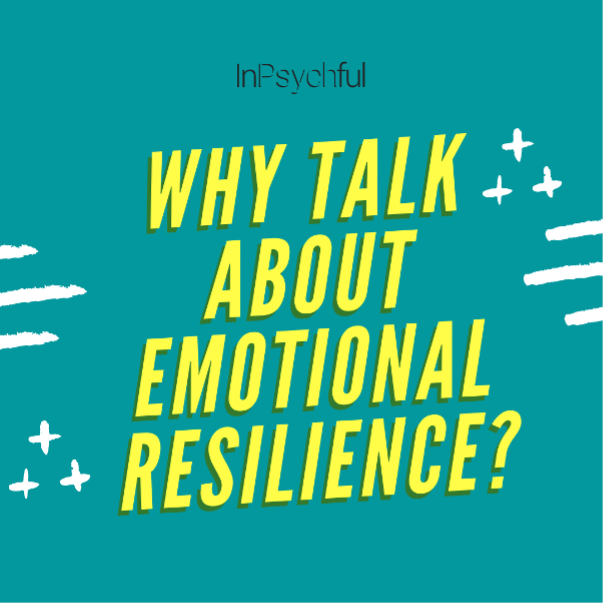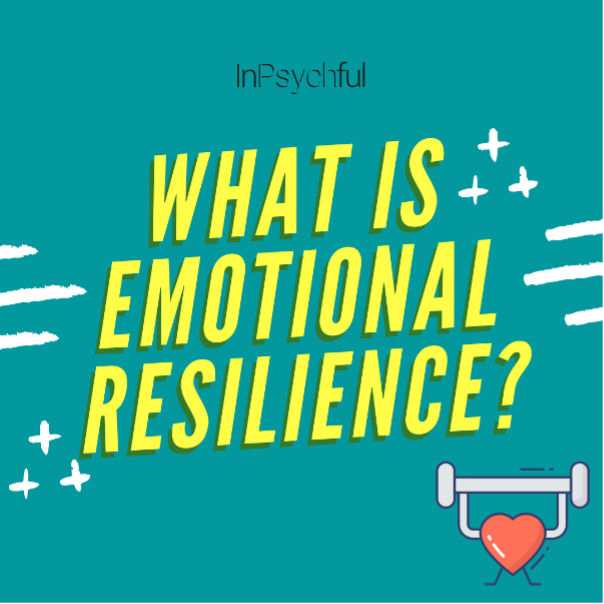Why talk about emotional resilience?
In 2017, the National Youth Council (NYC) conducted a survey with 3,531 youths aged 15 to 34. The results found that local youths were not entirely confident they can handle life’s challenges. Respondents were asked to rate on a five-point scale questions such as whether they tend to bounce back quickly after hard times. The average score attained was 3.29, indicating that they were not entirely confident about their own ability to respond to challenges (Chua, 2017). Hence, “emotional resilience” became a focus that the Singapore government wanted to target with the youths in Singapore.
Life may not come with a map but there surely are twists and turns along the way. When life throws us something not so pleasant, from our small daily struggles to more difficult traumatic experiences, like the loss of a loved one or a sudden critical illness, we all experience negative thoughts and emotions that bring us down and demoralise us. Yet, people generally adapt to stressful or life-changing situations eventually and this is in part thanks to the power of emotional resilience (American Psychological Association, 2012).
Singapore youths have been reported to be worried about their futures and the responsibilities they have to assume as adults. In the survey by NYC, “future uncertainty” ranked as their biggest source of stress, with “studies” coming in second and “emerging adult responsibility” in third place (Chua, 2017). This is unsurprising given the situation in the present-day world where one’s career route is no longer as straightforward as in the past. Technology has connected the world like never before and opportunities have become incredibly diverse and abundant, yet increasingly competitive as well. Hence, with greater opportunities come greater uncertainties and Singaporean youths need to be equipped with greater emotional resilience to bounce back from inevitable setbacks and persevere in the face of rejection.
Many of us now work in highly demanding work cultures where stress and the risk of job burnout are widespread. It is clear that work stress is related to the increasing pace and intensity of work that is on a rise globally. A survey that was conducted on 100,000 employees across Asia, Europe, Africa, North America, and South America reported that employee depression, stress and anxiety accounted for 82.6% of all emotional health cases in Employee Assistance Programs in 2014, up from 55.2% in 2012 (Fernandez, 2016). Since the pace and intensity of contemporary work culture are not likely to change, it’s more important than ever to build resilience skills to effectively navigate our work life.
In the aspect of relationships, emotional resilience is also of utmost importance as couples all experience conflict. Have you ever wondered why some relationships are able to endure even the most stressful and difficult situations while others collapse over a trivial matter? Couples who do not develop the capacity to repair can end up with constant bickering, days of cold war or bitter resentment. On the other hand, resilient couples have the confidence that their relationship is strong enough to weather tough situations and that a conflict would only help them gain a deeper understanding of one another (Kay, 2018). Ultimately, if one does not have the resilience to persevere through tough times with their partner and considers walking away whenever the road gets rocky, it is unlikely that the relationship will be one that is fruitful and long-lasting. Hence, emotional resilience is imperative to increase a couple’s likelihood of survival when confronted with adversity, big or small (Everly, 2018).
What is emotional resilience?
Psychologists define emotional resilience as the process of adapting well in the face of adversity, trauma, tragedy, threats, or significant sources of stress—such as family and relationship problems, serious health problems, or workplace and financial stressors (American Psychological Association, 2012). Alternatively, Marano (2003) describes emotional resilience as a way of living that entwines self-compassion, self-belief and enhanced cognition, where we empower ourselves to perceive adversities as ‘temporary’ and evolve through suffering and pain.
As much as resilience constitutes “bouncing back” from challenging circumstances, there is great opportunity for profound growth amidst adversities. This is because emotional resilience isn’t a “bend but don’t break” trait, but rather, an acceptance of the fact that ‘I have been broken, but I will continue and strive to grow with these broken pieces’ (Chowdhury, 2020). That is the essence of emotional resilience: the ability to experience something stressful without letting it destroy your sense of purpose, resolve or hopes for the future. It is more than just keeping calm and carrying on. Being emotionally resilient means that you can acknowledge and understand your negative feelings instead of locking them away or being overwhelmed by them. When an emotionally resilient person manages to keep their emotions under control in an difficult or seemingly unfair situation and wears a brave face, there is a genuine bravery and optimism behind it.
Also, while adverse events might be painful, they do not determine the final outcome. There are many aspects of our lives that we can control, modify and grow with, which is where resilience comes in. It helps us to not give up in the face of difficult circumstances, but rather, use these events as personal growth opportunities. Unpleasant events also help us learn from our past experiences and gain an insight to avoid actions that might put us in such situations once again. If we find ourselves reacting to negative situations in a maladaptive manner, increasing our emotional resilience means replacing these self-destructive habits with more adaptive ones, by investigating the specific triggers that spark our stress so that we are able to anticipate similar situations in future and mentally prepare a response against them (McAuliffe, 2017).
Stress and sorrow are an inevitable part of life. But the bright side of encountering them is that they give us an opportunity to challenge ourself to get out of our comfort zone and make ourselves mentally stronger. Emotional resilience isn’t a fixed trait that you either have or not have. Rather, it is a continuous process that we can all strive towards and achieve with practice (Mind, 2017). So, let’s work on building ourselves from the ups and the downs in life because tough times do not last. That warm ray of sunshine will regain its nice warmth when we start to build and expand our resilience skills.
Camellia Wong., MA, Karin Ng
Read More
https://inpsychful.sg/mental-toughness-coaching/
How do you know if your romantic relationship is mentally draining you?
References
American Psychological Association. (2012). Building your resilience. Retrieved February 22, 2021, from https://www.apa.org/topics/resilience
Chua, J. (2017). Young people not ‘entirely confident’ in handling life’s challenges: Survey. Retrieved February 26, 2021, from https://www.todayonline.com/singapore/young-people-not-entirely-confident-handling-lifes-challenges-survey
Chowdhury, M. R. (2020). What is Emotional Resilience and How to Build It? (+Training Exercises). Retrieved February 22, 2021, from https://positivepsychology.com/emotional-resilience/
Everly, G. S. (2018). 7 Characteristics of Resilient Relationships. Retrieved February 26, 2021, from https://www.psychologytoday.com/us/blog/when-disaster-strikes-inside-disaster-psychology/201804/7-characteristics-resilient
Fernandez, R. (2016). 5 Ways to Boost Your Resilience at Work. Retrieved February 26, 2021, from https://hbr.org/2016/06/627-building-resilience-ic-5-ways-to-build-your-personal-resilience-at-work
Kay, M. F.(2018). How Building Resilience Could Save Your Relationship. Retrieved February 26, 2021, from https://www.psychologytoday.com/us/blog/financial-life-focus/201801/how-building-resilience-could-save-your-relationship
Marano, H. E. (2003). The Art of Resilience. Retrieved February 22, 2021, https://www.psychologytoday.com/sg/articles/200305/the-art-resilience
McAuliffe, K. (2017). Stay Calm: How to Become More Emotionally Resilient. Retrieved February 22, 2021, https://zapier.com/blog/how-to-be-resilient/
Mind (2017). How to manage stress. Retrieved February 22, 2021, from https://www.mind.org.uk/information-support/types-of-mental-health-problems/stress/developing-resilience/


